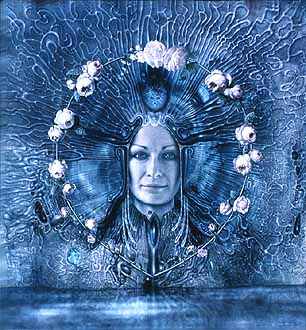|
Hi, this your perennial philosoher cataloging
the various explanations put forth by major faiths for to explain thy SHIT HAPPENS. The greater the god the greater
the bull shit, with the pinacle of stench coming from the Christian theologians who hold that their God is
the creator, omniscient, omnipotent, and perfectly beneficent.
| venosa |

|
|
|
SOME ANSWERS OF "WHY THERE IS HARM
Well Alan, I
am again back to trying to send you an attachment. This time I thought I'd send something I worth discussing and saving.
It lays open the incongruous claims of the believers. I like "harm" better than "evil" because it is more inclusive and it
doesn't imply an agent with bad intent. Maybe you could add to this list.
1. The Gods are not involved (Epicurus'
position) because they are too perfect to need anything from mortals. They are blissfully content in their own realm.
2.
No Gods (atheist's position).
3. The chief God is not so powerful as to undo or confound the workings of the dark
(evil, harm causing) gods (Hindus, Hebrews, et al).*
4. Yahweh is a lesser God (the higher gods are not involved in
earthly affairs(Gnostics). The creation of man by Yahweh is thus imperfect.
5. God is testing us to see WHO
is worthy of the kingdom of heaven (Christians). (But why test given that their god is omniscient?)
6. The unfortuitous
things that occur to man are part of the just proportioning worked out by the 3 Fates (ancient Greek Religion) of
rewards and punishments. This proportioning is just given the myriad of factors including the complex hierarchies
of gods, kings, demigods, ordinary people, and distant past acts. A different result would have consequence--not
apparent to us--that would result in the long run in a less just proportioning.
7. Harm is a result of past life transgressions
as well as those in the present life. The punishment is carried on the books into this life. Suffering pays off the past-life
debt. (Sikhs, Buddhists, et al).
8. There is no evil for everything is a part of God, and God does not contain evil
(pantheists). And since we are a part of God, then harm is a mere illusion, for God cannot be harmed.
9. Every unfortuitous
event that befalls a people is for grievous transgression against god's laws, thus all instance of harm are merited either
because of the individual's actions or the actions of the community. (Hebrews & Christians). It is just for a god to punish
for a transgression. Thus the Caltholics held that the earthquake of Lisbon was held to be punishment for allowing the Jews
to live in that city. The Prostestants held the punishment was for Catholicism of the inhabitants.
*
I am not claiming to give the position of all, or even a majority of the sects of a religion, but rather merely to list the
solution proffered by at least one sect of a major religion.
Remember, Alan, that this is the best of all possible
worlds. A perfect god (so the Christians tell us about Him) could not create other.
Our Judeo – Christian – Muslim
heritage merits special attention. I have often wondered about the people who
have made Yahweh into a monster. I also wondered how the humanitarian sentiments
expressed in the Sermon on the Mount fail affect their god. Xenophanes (was the
first known to us) to have written about ungodly gods. “Homer and Hesiod
ascribed to the Gods all things that are a shame and disgrace among mortals, stealing and adulteries and deceiving one another.”
The anonymous authors of the Old Testament ascribed to Yahweh all things
that are a shame and disgrace among mortals: jealousy, pride, vengefulness, favoritism,
cruelty, arbitrariness. And by the third century the Christian church had
heaped cruelties so monstrous that the words of John Stuart Mill (describing his father’s views) are beyond dispute:
Nations have represented their gods as wicked, in a constantly
increasing progression, that mankind have gone on adding trait after trait till they reached the most perfect conception of
wickedness which the human mind can devise, and have called this God, and prostrated themselves before it. This ne plus ultra of wickedness he considered to be embodied in what is commonly presented to mankind as the creed
of Christianity. Think (he used to say) of a being who would make a hell-who would create the human race with the infallible
foreknowledge, and therefore with the intention-that the great majority of them were to be consigned to horrible and everlasting
torment.
Obviously the fault is man’s.
Make Twain note this: “If man could be crossed with the cat it would improve man, but it would deteriorate the cat.”
|